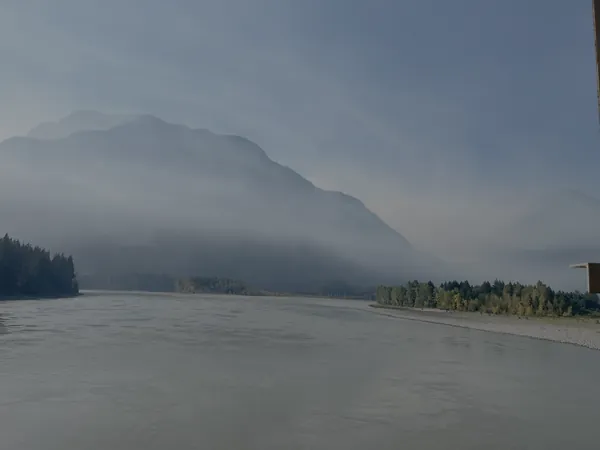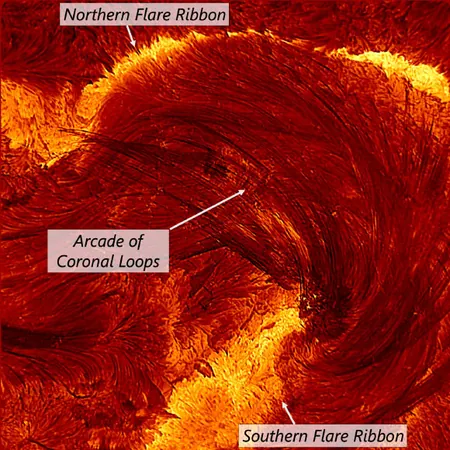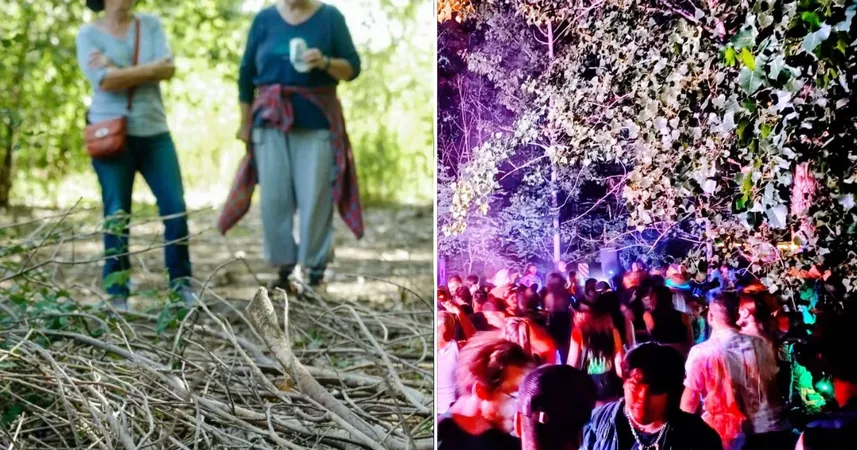
Revealed: How Wildfires Are Threatening Our Oceans and Their Carbon Storage
2025-06-17
Author: Emily
Recent research from the University of British Columbia uncovers a shocking link between wildfires and ocean health, suggesting that forest fires might be jeopardizing our waterways and disrupting their ability to sequester carbon.
The Alarming Impact of Wildfires on River Water Quality
Led by Dr. Brian Hunt and research scientist Emily Brown, the study focused on the extensive Fraser River basin. The findings reveal that when forests ignite, they release harmful ash, soil particles, and chemicals into surrounding environments. Through an analysis of water quality data from the last two decades, researchers discovered that a staggering 16.3% of water quality variations can be traced back to wildfires in the area.
Untamed Fires and Their Aftermath
While much of the Fraser River isn’t used for drinking, the study highlights a pressing concern: the ripple effect on marine ecosystems downstream. Increased nutrients from wildfires can spur toxic algae blooms that deplete oxygen and endanger aquatic life including fish and shellfish. This illustrates a clear and present danger, as the frequency and intensity of wildfires rise in the region.
How Wildfires Might Alter Carbon Sequestration
Wildfires don’t just affect freshwater systems; they could also change how oceans contribute to climate change. When trees burn, they produce black carbon, which can sequester carbon from the atmosphere. However, with climate change shifting more river water from snowmelt to rain, the dynamics of this black carbon are at risk. If more rapid degradation occurs, we could see not only diminished carbon storage but also an increase in carbon dioxide emissions.
Taking Action: A Call for Resilience and Restoration
Given these troubling trends, it’s crucial for policymakers and environmental managers to understand and integrate the cascading effects of wildfires into climate resilience planning. Enhanced monitoring of water quality post-wildfires is essential to protect these vital ecosystems.
Additionally, experts emphasize the importance of returning to a natural fire regime. Indigenous nations, who have long understood the ecological role of fire, could lead initiatives that include prescribed burning and cultural practices to manage landscapes more sustainably. By doing so, we could help mitigate the growing threat of wildfires and safeguard both freshwater systems and ocean health.









 Brasil (PT)
Brasil (PT)
 Canada (EN)
Canada (EN)
 Chile (ES)
Chile (ES)
 Česko (CS)
Česko (CS)
 대한민국 (KO)
대한민국 (KO)
 España (ES)
España (ES)
 France (FR)
France (FR)
 Hong Kong (EN)
Hong Kong (EN)
 Italia (IT)
Italia (IT)
 日本 (JA)
日本 (JA)
 Magyarország (HU)
Magyarország (HU)
 Norge (NO)
Norge (NO)
 Polska (PL)
Polska (PL)
 Schweiz (DE)
Schweiz (DE)
 Singapore (EN)
Singapore (EN)
 Sverige (SV)
Sverige (SV)
 Suomi (FI)
Suomi (FI)
 Türkiye (TR)
Türkiye (TR)
 الإمارات العربية المتحدة (AR)
الإمارات العربية المتحدة (AR)